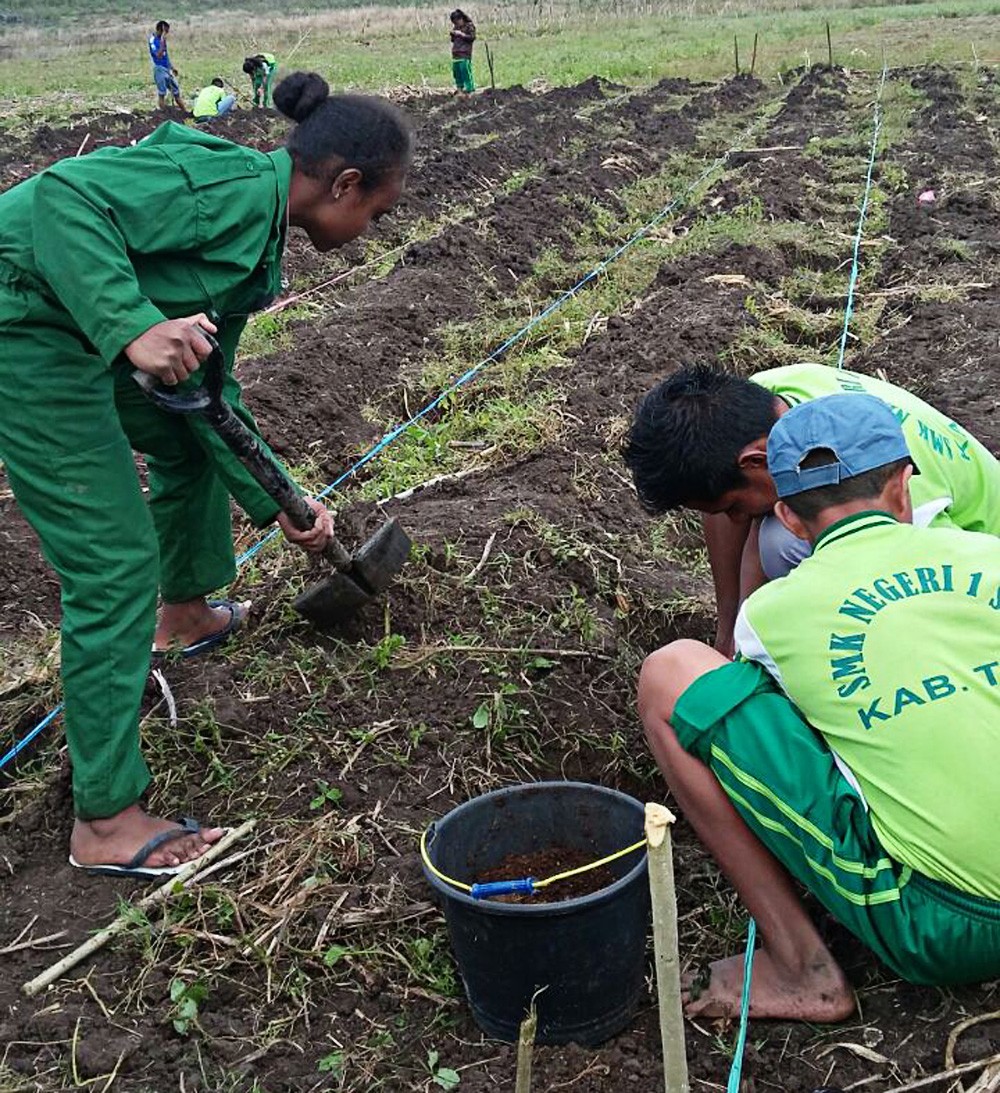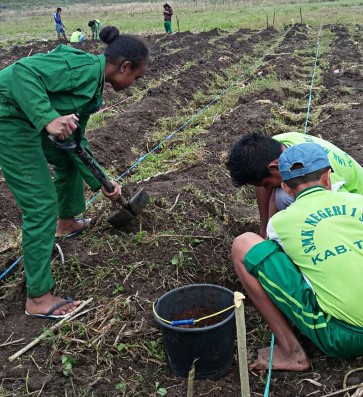Popular Reads
Top Results
Can't find what you're looking for?
View all search resultsPopular Reads
Top Results
Can't find what you're looking for?
View all search resultsIndonesia's net zero target and sustainable agriculture: Are we on the right track?
A policy overhaul in the agriculture and related sectors is needed to eliminate programs that hinder the country from reaching its net zero goals and to encourage sustainable practices that ensure food security.
Change text size
Gift Premium Articles
to Anyone
I
ndonesia may be determined to meet its ambitious emission reduction targets but without supportive agricultural policies, these targets will remain elusive and the agriculture sector will remain among the highest emission contributors. A policy overhaul is thus required to produce long-term strategies that support sustainability and the environment’s carrying capacity for human needs.
The government released its first National Determined Contribution (NDC) to reduce carbon emissions in 2016 and an updated version in September 2022. The latest NDC sets greenhouse gas (GHG) reduction targets in the agriculture sector at 10 million tonnes of CO2 equivalent (Mt CO2 eq) in an unconditional mitigation scenario and 12 Mt CO2 eq in a conditional scenario, aiming to reduce emissions by respectively 0.3 percent and 0.4 percent compared to business as usual.
While agriculture must produce sufficient food to meet the nation’s needs and to ensure nutritional security, the efforts to do so should not degrade the environment and contribute to exacerbating climate change.
The government’s net zero strategy has at least four focus points: improving crop productivity and intensity, integrating farming and agroforestry, optimizing unproductive land and reducing food loss and waste. But with the agriculture, forestry and fishing sectors contributing 1.29 Mt CO2 eq, Indonesia faces a tough challenge in achieving its net zero targets.
The government’s current agricultural policies also do not seem to support its net-zero targets. For instance, state-sponsored food estate programs in Central Kalimantan and Papua are being developed in forest and peatland areas, worsening the climate crisis and causing losses of 427.2 tonnes of carbon per hectare of converted peatland.
Considering the unintended consequences of fertilizer subsidy, or unfair advantages for certain commodities and fertilizer overuse, the money could have been instead reallocated to more sustainable farming programs.
Its net zero target should push Indonesia to practice sustainable agriculture on a wide scale, enabling the agriculture sector to become more resilient while also improving farmers’ welfare in the long run.
















